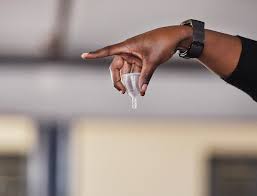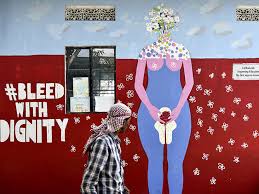Ways you can do your bit towards menstrual health awareness
4 minuteRead

By Samyati Mohanty
In the early 2000s, neither the development sector nor the government had identified menstruation hygiene as a problem or an issue.There was no clear issue statement and no practical answers for the great majority of women at the bottom of the pyramid. We were new to the topic and didn't fully get the complexities of menstruation hygiene, but we were nonetheless astonished by the lack of attention and knowledge surrounding the topic. Because the first stakeholder you talk to and interact with in India is a woman, whether you work with self-help groups, microfinance institutions, or anganwadis.
Menstruation is still a taboo subject in India, not just in rural areas but also in cities, more than a decade later. Buying sanitary pads from your local pharmacy will almost always come wrapped in a black plastic bag or a newspaper.
Is it possible to focus on dignity rather than distribution?
Governments, civil society organisations, and even Bollywood have begun to promote menstruation health awareness. With the emergence of so many feminine hygiene product companies, the landscape is changing. However, awareness is not enough. Have there been any changes in social norms? Is any of this assisting in the resolution of the issues that millions of women face every month when they menstruate?
This isn't to say there aren't any notable players in the space. Some menstrual health advocates have managed to blend dignity and information into their work. However, it appears that product distribution is still the primary priority.
Women have challenges on three levels: the first is on a transactional level, which includes things like sanitary products and underwear. Second, on an infrastructure level, which includes the lack of private spaces, water, restrooms, and disposal techniques, among other things. Finally, on a psychological level, there is still a persistent culture of shame and quiet, as well as a disregard for women's dignity and health.
The 'triple A' idea states that discussions regarding sanitary pads and menstrual hygiene must address awareness, accessibility, and affordability. So simply giving out stuff will not fix the situation. We believe that charity is kind but devoid of dignity, and that it can never be a long-term solution or contribute to significant change. It's vital to remember the women and girls we work with have dignity. When we take on this problem on our own, we must ensure that our "solutions" do not jeopardise their dignity. We must also consider the influence of our work on the environment.
We're currently marketing a country as a plastic-heavy product. Almost every pad has a plastic coating on it. They're still packed in plastic bags even if they don't. You'd need nearly 3,000-5,000 pads per month if every woman and girl in a hamlet of 100-200 homes started using pads on a regular basis. This equates to 40,000-50,000 pads annually. Only 100-200 houses contributed 50,000 plastic, non-biodegradable sheets. The consequences for our ecology and water bodies are staggering. With the sanitary pad business rapidly expanding into smaller towns and villages, we risk introducing the same waste disposal and management issues that cities face to these areas.
How can we make the conversation about menstruation health more normal?
Understanding the importance of cloth in a woman's life. Consider whether a single piece of cloth could be used to initiate a conversation on menstrual health and hygiene.
Women utilise a variety of potentially harmful things during menstruation, including ash, sand, jute, newspapers, and more. Even cloth can be dangerous if there isn't a discussion about safe use, cleaning, and hygiene. Many NGOs have also discovered that women with different menstrual cycles frequently share the same piece of cloth. Because taps are frequently situated in public settings, many people are unable to wash it. When women do manage to wash those cloth pieces, they typically lack the space required to thoroughly dry it.
Organizing 'Break the Silence' meetings in cities and towns to give a safe space for people to talk about their periods. Instead of immediately discussing blood and stigma, begin by discussing cloth and its utility, and build from there. We must remember that menstruation is a very personal matter for women, both in terms of their bodies and their dignity.
Understanding what women (from all walks of life, in villages and cities) really desire in terms of how they deal with this essential issue on a monthly basis is critical. If we can combine awareness with accessibility and affordability while maintaining a focus on women's dignity, we might be able to start changing the conversation about menstruation health and cleanliness.
Better, more inclusive menstrual cycle and health education for all, beginning in primary school and including boys, are among the major factors that will help minimise menstruation stigma. As kids go through puberty and have changing needs, this teaching should continue throughout secondary school.
Pic Source in Banner: nu
Write, Record and Answer! Consume Unlimited Content! All you need to do is sign in and its absolutely free!
Continue with one click!!By signing up, you agree to our Terms and Conditions and Privacy Policy.














